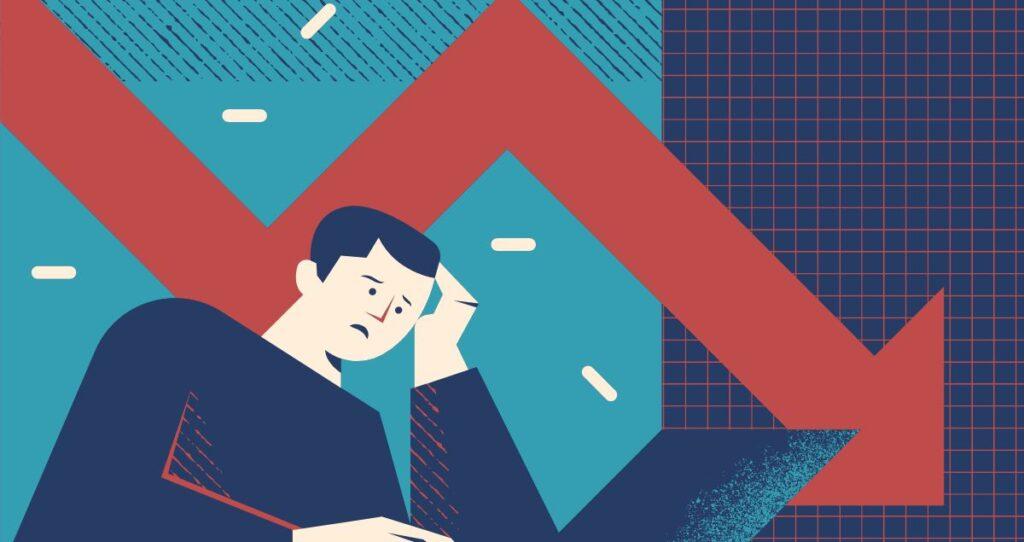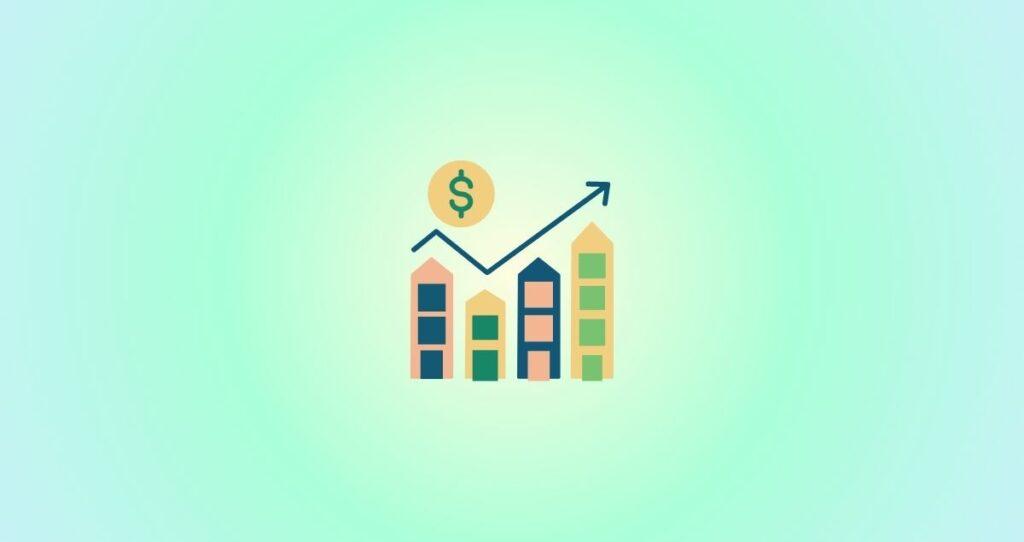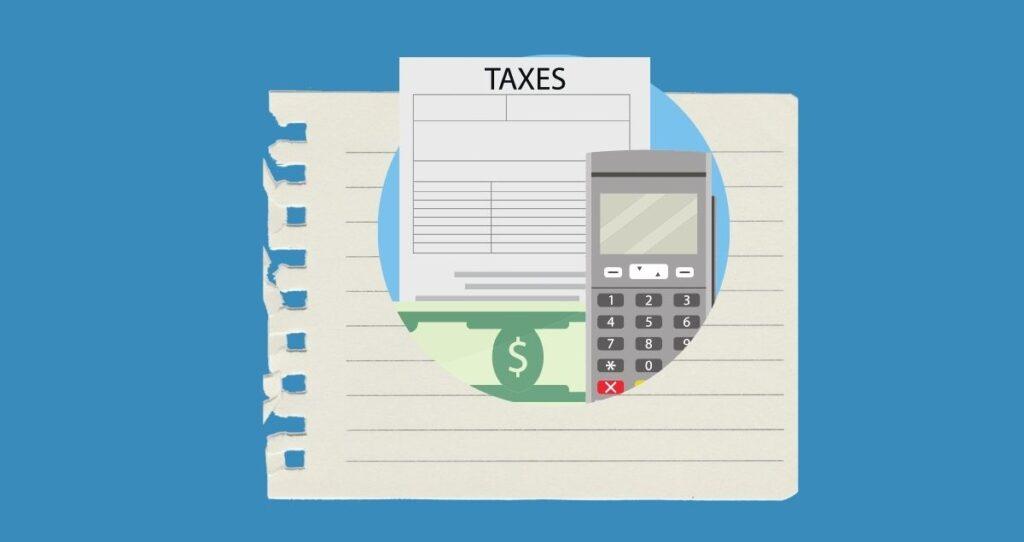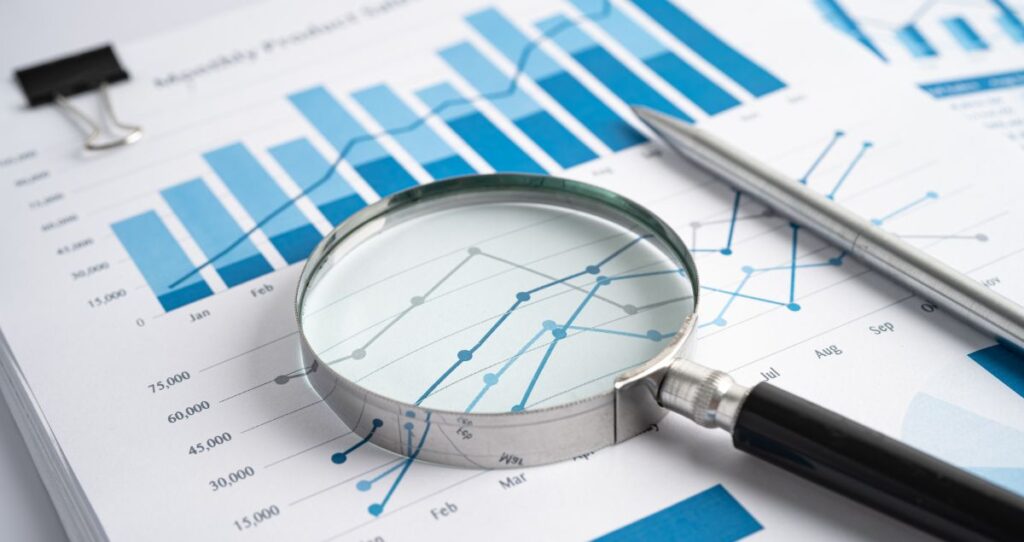Are you worried about the possibility of a recession? With the world’s economy in a precarious state, it’s natural to feel uneasy about what the future holds. Whether a recession is on the horizon or not, it’s always best to prepare yourself financially to weather any storm that may come your way. In this article, we’ll provide you with 13 effective strategies to prepare for a recession and overcome its impact on your finances.
During a recession, it’s essential to focus on building a solid financial foundation that can withstand economic fluctuations. This can include establishing an emergency fund, reducing debt, diversifying your investments, and exploring new income streams. By taking proactive steps to prepare for a recession, you can position yourself to thrive and survive during times of economic uncertainty.
What is a recession?
To fully understand how to prepare for a recession, it’s important to first know what a recession is. A recession is a significant decline in economic activity, typically spread across multiple sectors and lasting for a sustained period of time.
During a recession, there is a decrease in consumer spending, business investment, and employment rates. This can lead to a domino effect that impacts the entire economy and can be felt by individuals and businesses alike.
For example, the most recent recession was in 2020 which was triggered by the pandemic. The U.S. economy lost 20.5 million jobs and the unemployment rate spiked to 14.7% in April 2020, according to the balance. The economy contracted by 31.2% in the second quarter of 2020 and many businesses went bankrupt and others were bailed out.
It’s important to note that a recession is a natural part of the economic cycle and can occur for a variety of reasons, such as high inflation, financial crisis, natural disasters, etc.
What does a recession mean to the average person?
It is essential to prepare for a recession at an individual level as its effect can be devastating. During a recession, you are more likely to lose your job and face financial difficulties. The prices could also go higher due to higher inflation rates, and your healthcare coverage or access to it could also be reduced.
Additionally, you might lose access to credit as many businesses stop lending money due to unfavorable economic conditions. For example, in the 2008 great recession, many mortgage companies were not originating new loans for homebuyers due to a higher risk of loan defaults.
Whether you are a consumer or a business entity; it is essential to prepare for a recession to minimize its impact on your financial stability and ensure long-term financial success.
How to prepare for a recession?
Simply put, preparing for a recession means preparing yourself mentally and financially for the worst-case scenario during economic uncertainties. Since a recession will have a direct impact on many areas of your financial conditions such as earning potential, cost of living, ability to save, and investment returns; it is critical to put in place tough measures before a recession hits.
To prepare for a recession, you need to use good economic times to your advantage. In order words, when you anticipate a recession on the horizon, it is essential to form a budget, build an emergency fund, limit your spending, boost your savings, and avoid high-interest debts such as revolving credit loans and personal loans. Restructuring your investment strategies is also critical to surviving a recession.
The following are effective strategies to prepare for a recession and survive it like a pro.
1. Build multiple income streams
During a recession, many businesses lay off employees and minimize their production capacities to preserve capital due to reduced demand. This means that as an employee, your job security is at the highest risk during a recession. A potential loss of a job is almost guaranteed.
This is why one of the best ways to prepare for a recession is by ensuring you have multiple streams of income. By diversifying your income streams, you can protect yourself from sudden job loss or reduced earnings.
How to build multiple streams of income?
One way to mitigate the effects of a recession on your finances is to start a side hustle and look for new ways to earn money. There are many ways to build multiple income streams and the following tips can be your starting point.
- Start a side business or freelancing gig in your spare time. The easiest way to start a side hustle and prepare for a recession is to monetize what you already know or build a business around your hobby. For example, if you are a science teacher, you can offer online courses or become a tutor in your spare time. If you work as a business strategist, you can offer business consulting services to other businesses on the side.
- Invest in income-generating assets. For example, you can invest in rental properties or dividend-paying stocks. This will ensure a steady stream of income even if you might lose your 9 to 5 job.
- Sell products or services online through platforms like Etsy or Amazon. This is an effective way to diversify your income and recession-proof your finances.
While creating multiple sources of income streams is an effective strategy to prepare for a recession; it’s important to note that it requires time and effort. It may take months or even years before you see significant returns from your side hustle or investment portfolio. That’s why it’s important to start early and consistently work towards diversifying your income streams.
Related: 10 profitable side hustles to start with no money
2. Diversify your investment portfolio
In addition to building multiple income streams, it’s crucial to diversify your investment portfolios to prepare for a recession. Recessions can be unpredictable and may affect certain industries or asset classes more than others. By diversifying your portfolio, you can mitigate the potential risks and financial losses.
The best way to survive a recession through diversification is to invest in a mix of stocks, bonds, real estate, and alternative investments such as commodities and precious metals such as gold and silver. This mix should align with your risk tolerance and financial goals. It’s important to regularly review and rebalance your portfolio to ensure it stays diversified and aligned with your goals.
You can also put your money in safer investment accounts such as high-yield savings accounts and certificates of deposits(CDs). These accounts guarantee the safety of your principal amount since they are insured by the Federal Deposit Insurance Corporation (FDIC) for bank accounts and the National Credit Union Administration (NCUA) for share certificates up to $250,000 per account per depositor. Not only that your deposits will be safe from market fluctuations, but these accounts also come with fixed interest rates-meaning your money will continue to grow regardless of market conditions.
Are you interested in buying dividend stocks or opening a CD account as a way to recession-proof your finances? Use the following guides to get started.
- How to invest in dividend stocks?
- How to open a CD account: A Step-by-step guide
- 11 Types of CDs: Which certificate of deposit is right for you?
3. Reduce your monthly expenses
Being proactive and taking necessary steps can help you thrive and survive a recession. One of the most essential aspects of preparing for a recession and safeguarding your finances is reducing your monthly expenses.
Cutting back on non-essential expenses can free up more cash flow to invest or build your emergency fund. This can involve scrutinizing your monthly budget and finding ways to minimize your expenses. You can start by assessing your monthly bills and see where you can make cuts. For instance, you can reduce your cable TV bill, switch to a cheaper cell phone plan, or shop for better insurance rates. You can also try to save money on groceries by purchasing generic brands, buying in bulk, or meal prepping.
You might also like: 20 clever ways to reduce expenses and increase savings
4. Create an emergency fund
Building an emergency fund is crucial to surviving a recession. The emergency fund provides a safety net for unexpected expenses, such as medical bills or job loss. To create an emergency fund, start by reducing your monthly expenses. Evaluate where you can cut back on non-essential items, such as dining out or subscription services. Take the money you save and allocate it towards your emergency fund.
It’s recommended that your emergency fund should cover three to six months’ worth of living expenses. While this may seem overwhelming at first, start small by setting aside a portion of your paycheck each month. Consider automating your savings by setting up automatic transfers from your checking account to your emergency savings account.
By building this cushion, you’ll have peace of mind knowing that you have a financial fallback in case of an emergency. This is especially important during a recession when job security is uncertain, and the economy is unpredictable. An emergency fund can help you avoid going into debt and falling into a financial hole during tough times.
Related: 4 ways to save for emergency fund fast
5. Pay off your debts (start with high-interest loans)
Experiencing a recession is always tough. Having too much debt during a recession, however, is more terrifying as your chances of defaulting on your loans or filing for bankruptcy increase dramatically due to the potential loss of your job. This is why paying off your debts is an essential strategy to prepare for a recession.
Debts can not only eat away at your income, but they can also compound quickly with interest rates, making it harder and harder to pay them off. By paying off your debts, you’ll have more financial flexibility and can avoid accruing more debt in case of an unforeseeable event.
After creating an emergency fund, it is critical to start prioritizing your debts. You should focus on paying off high-interest debts first, such as credit card balances. Consider consolidating debts into a lower-interest loan or reaching out to creditors to negotiate a payment plan.
Are you interested in paying off your loans? Use one of the two most popular strategies to pay off debts listed below.
- How to use the debt avalanche method to pay off debt?
- How to use the debt snowball method to pay off debt?
6. Don’t panic: Panicking leads to costly mistakes during a recession
In times of recession, it’s understandable to feel anxious about your financial situation. Most people fear a recession and treat it like the end of the world. This panic leads to liquidating their investments at huge losses when they were supposed to be holding or buying. In other words, by being in a state of panic, people make irrational decisions that lead to further financial instability.
This is why avoiding panic is an essential habit to practice when preparing for a recession and during an actual recession. Instead of panicking, take a deep breath and focus on creating a plan to build financial resilience.
Again, recessions come and go. This is a natural and economic factor that you cannot prevent. What you are in control of is how you prepare for the recession and the measure you put in place to survive a recession. So, keep your focus on preparing yourself mentally and building financial resilience instead of panicking.
Are you looking for ways to prepare for a recession mentally, avoid worrying, and fight financial stress? Use the following guides.
7. Focus on skills that are in high demand
While starting a side hustle can be a great way to pad your income during a recession, it’s not for everyone. It requires time, resources, and a certain level of commitment that not everyone can afford. If you don’t have the time or resources to start a side hustle, developing skills that are in high demand can be just as beneficial.
By focusing on skills that are in high demand, you can ensure that you remain competitive in the job market and have the flexibility to adapt to changing circumstances. The job market is always evolving, and it’s important to stay up-to-date with the latest trends and technologies to remain competitive.
Some skills that are in high demand right now include programming, data analysis, digital marketing, cyber security, cloud computing, data science, web design, etc. These are all skills that can be learned online through various courses and tutorials. By investing time and resources into developing these skills, you can increase your earning potential and make yourself more attractive to potential employers.
However, it’s important to note that simply developing these skills is not enough. You need to be able to demonstrate your expertise and showcase your work to potential employers. This can be done through online portfolios, social media, and networking.
You might also like: How to secure your financial future after landing a job?
8. Consider cheaper housing options
As the economy tightens and jobs become scarce during a recession, it might be time to consider alternative housing options. While owning a home is a dream for many, it can also be a financial burden during tough times. This is where alternative housing options come into play.
Co-living spaces, tiny homes, house sharing, and house hacking are just a few examples of alternative housing options that can save you money. Co-living spaces offer communal living arrangements with shared spaces and amenities, reducing your living expenses. Tiny homes are becoming increasingly popular due to their affordability and flexibility. House sharing allows you to share rent and utilities with roommates, lowering your monthly living expenses.
House hacking allows you to lease unutilized space in your home or an extra unit and collect monthly rent. For example, instead of buying a single-family home, buy a multifamily such as a duplex, triplex, etc. This allows you to live in one unit and lease the other one.
The benefit of this arrangement is that your tenant will help cover your mortgage monthly payments and lower the cost of your living conditions. If you are renting, move into a much cheaper apartment to preserve your capital. The money you will be saving on living expenses can be used to boost your savings, emergency funds, or investments.
9. Boost your savings
While a recession can be intimidating to most people, boosting your savings can help survive it with less financial stress. An effective strategy to boost your savings is to make a budget that allows you to cut down on your daily spending and save more money. If you are not sure where to begin, start with the 50-30-20 budget rule. This rule suggests that you should spend 50% of your income on needs, 30% on wants, and 20 on savings.
Other strategies to prepare for a recession by saving more money include the following.
- Set up automatic transfers from your checking account to your savings account on a regular basis. This will ensure that you consistently contribute to your emergency fund and savings account without having to actively think about it.
- Increase your savings by looking for ways to earn more money. This could mean taking on a side hustle or freelance work. You could also look for opportunities to earn passive income, such as renting out a spare room on Airbnb or selling products online.
- Increase contributions to your retirement savings accounts. An effective strategy to save more money is to boost your contribution to retirement accounts. While your retirement accounts such as 401(k) plans, and IRAs (Roth IRA and Traditional IRA) will fluctuate with respect to changes in the market, they are considered safer than regular securities such as individual stocks. In addition, your employer might contribute to the account which is free money.
These accounts also help you minimize your current tax liability and growth your accounts either on a tax-free or tax-deferred basis which is essential in building wealth.
- Paying off your debts is also an effective way to save more money and prepare for a recession. For example, instead of investing your extra cash and earning a 7% return on investments from government bonds, for example, use that money to pay off high-interest debts. At the end of the day, it will not make sense to earn 7% while paying 20% on your credit card debt.
10. Increase your cash reserve
While a recession can be intimidating and many businesses might close their doors, this could also be an opportunity to buy profitable investments on sale. For example, during the 2008 great recession, the average house price dropped about 13%, according to the Balance whereas in some markets, home prices dropped more than 20%, according to Newsweek. Additionally, over six million people lost their homes during the great recession of 2008 due to foreclosures, according to the New York University.
What do these statistics mean to you as a savvy investor? These numbers translate to an opportunity of a lifetime. Investors who have saved enough cash were able to buy cheap real estate at 20% or more discount. As you prepare for a recession, don’t forget to increase your cash reserve for investment opportunities. The sector that is affected the most usually experiences a sharp decrease in prices which allows you to put your money to work and build wealth.
11. Stay informed about the economy
Preparing for a recession and surviving its wrath involves more than just saving money. While having a solid cushion of savings is important, it’s also crucial to stay informed about the economy and how it may impact your finances. By staying up-to-date on economic news and trends, you can make informed decisions about your investments and financial strategy.
For example, if you know that a recession is likely to occur, you might consider moving some of your investments into more stable assets such as bonds or gold. You may also want to adjust the amount you’re contributing to your retirement accounts or consider paying off high-interest debt before a recession occurs.
However, it’s important to note that not all recessions are the same, and the impact on the economy can vary widely depending on the specific circumstances. That’s why it’s crucial to stay informed and consult with a financial advisor or other trusted professional to make the best decisions for your unique situation.
12. Take care of your health and well-being
In times of economic uncertainty, it can be easy to prioritize financial preparations over personal well-being. However, neglecting your health and self-care can lead to increased stress and a negative mindset that can ultimately hinder your ability to thrive and survive a recession.
Taking care of your health and well-being doesn’t necessarily require expensive gym memberships or lavish spa treatments. Simple daily practices such as getting enough sleep, eating well-balanced meals, and engaging in regular exercise can greatly impact your overall mood and energy levels.
Additionally, prioritizing hobbies and activities that bring joy and relaxation can provide a much-needed break from financial stress. This will help you develop an optimistic mindset to handle to ups and downs of a recession with resilience and a positive outlook.
13. Avoid timing the market
While it’s natural to want to navigate a recession as strategically as possible, it can be tempting to try to time the market and make quick investments based on guesswork. This approach can be risky and often leads to losses. Instead, consider taking a long-term approach to your finances and investing in diversified assets that align with your personal goals and risk tolerance.
The truth is that no one knows the future. That is why you should always avoid the buying low and selling high strategy. If it was easy to know when the market has reached its lowest point, everyone would be rich. Instead of timing the market, many investors consider dollar cost averaging which is a strategy that allows you to buy the same asset as prices decline to bring the overall cost down.
Is it good to buy a house during a recession?
Making an expensive purchase such as a home purchase during a recession can be risky. This is because such an expense locks you into debt when your job security is at high risk. Losing your job could make it difficult to make mortgage payments and potentially lead to foreclosure.
With that being said if you strong financial foundation and have a reliable income to cover your monthly mortgage payments, buying a house during a recession can be rewarding. Depending on the nature of the recession, you might take advantage of lower home prices like in the 2008 housing market crash, or lower interest rates like in the 2020 Covid-19 market crash. Buying a house under these conditions could be a great investment as the house will appreciate over time and it will cost you less due to lower rates.
Ultimately, the decision to buy a house during a recession comes down to your personal financial situation and goals. Consider all factors, including job stability, your emergency fund, and the potential for long-term investment growth before making a decision.
How much money do you need to survive a recession?
When preparing for a recession, it’s essential to understand how much money you need to survive a recession. This varies for everyone based on factors such as job stability, financial situation, and lifestyle. For example, if you have a secure job, preparing for a recession or surviving it won’t be a big issue. However, if you are more likely to lose your job, building a strong financial foundation will be essential to your survival.
After losing your job, your survival will depend on your passive income and savings.
So, how much do you need to save to survive a recession?
To determine how much money you need to survive a recession, consider creating a list of necessary expenses and calculating them against your income. This will help you understand how much money you’ll need to cover your bills and maintain your lifestyle during difficult times.
It is also essential to consider how long recessions last when estimating your savings. Most recessions can last anywhere between 2 months to 18 months with 10 months being the average, according to Forbes. If you are anticipating that you might be unemployed during a recession, saving money that will last for the entire duration of the recession might be a smart idea. In this case, you might need to save at least 10 months’ worth of expenses.
For example, if your monthly expenses are $3,000, you should save at least $30,000 to cover the 10 months average recession duration. Keep in mind that this amount does not include your emergency fund which should cover at least 3 to six months of your expenses. Using this example, your total savings including emergency funds should be between $39,000 to $48,000.
This example is the worst-case scenario as it assumes you will be unemployed the whole time. You are probably not going to be unemployed for the entire duration of the recession. You could also look into other financial support such as applying for unemployment benefits through your state and the federal government to help you cover your expenses and recover from the recession.
What happens to your money in the bank during a recession?
As we’ve discussed, preparing for a recession involves more than just cutting expenses. Understanding how your savings will be affected during a recession is equally important.
During a recession, banks may become more cautious about lending money and may also offer lower interest rates on deposits. This reduced lending can result in a decrease in the money supply, and lower interest rates can make it less advantageous to save money in the bank. Additionally, if a bank fails during a recession, the Federal Deposit Insurance Corporation (FDIC) will ensure that each depositor is insured for up to $250,000.
If your credit union is insured by the National Credit Union Administration(NCUA), your savings are also insured up to $250,000, should your credit union fail during a recession.
To protect your money during a recession, consider diversifying your savings and investment options. Look into low-risk options like high-yield savings accounts, certificates of deposit, and money market accounts offered by FDIC and NCUA-insured banks and credit unions.
Do things get cheaper in a recession?
During a recession, some products become more affordable whereas others might get expensive. This is because market prices are determined by the balance between supply and demand. People tend to spend less money on things they want and focus on their needs. With reduced demand and increased competition, many businesses are forced to lower their prices to attract customers. This can translate to cost savings for consumers on everything from groceries to electronics.
On the other hand, if a recession leads to high demand for specific products, then those products and services will become more expensive. For example, in the 2020 recession stocks from businesses that offer online services such as marketplaces and conferencing skyrocketed due to increased revenues as people started doing everything online.
What becomes cheap during a recession?
One area where consumers can potentially save money during a recession is travel. Airlines, hotels, and other travel-related businesses often offer promotional deals and lower prices during economic downturns to encourage more people to travel and spend money. Buying a new car or house during a recession can also lead to significant cost savings, as dealers and sellers may be more willing to negotiate on price to make a sale. For example, during the pandemic, the Federal Reserve lowered rates to 0%-0.25%, according to Brookings, to encourage banks to lend money and consumers to buy houses. While home prices did drop as much, lower rates made it easy to save money on home purchases.
What becomes expensive during a recession?
It’s important to note that not everything becomes cheaper during a recession. Some goods and services, such as healthcare and education, may actually become more expensive. For example, the costs of toilet paper, hand sanitizers, and other health-related products were more than triple in many places in 2020. Additionally, while lower prices can be a benefit for consumers, they often come at the cost of reduced quality or fewer options as some businesses halt production to preserve their capital while others go bankrupt.
What causes a recession?
A recession is a period of economic decline where business activity slows down, and there’s a significant drop in economic output. There are several reasons why a recession can happen, but a recession usually happens when there is a sudden change in demand or supply across the economy. Sometimes this can occur because of natural disasters, financial crises, or changes in trade relationships with other countries. Regardless of the trigger, recessions can have a significant impact on consumers, leading to layoffs, higher unemployment rates, and decreased spending power.
The following are factors that are attributed to causing a recession.
- Financial factors. This happens when businesses in a particular sector(s) experience a financial shock which leads to reducing their production capacities and laying off a large number of employees. It could also be due to oversupply. For example, during solid economic conditions, many companies produce more to meet the demand. However, at some point, the demand peaks and starts to decline and companies get stuck with excessive inventory. This leads to lowering production, laying off employees, and eventually a recession. A sharp increase in interest rates due to higher inflation can also make it harder for individuals and businesses to access capital. Which overall reduces the demand for goods and services and eventually leads to an economic meltdown.
- Economic factors. Certain factors such as supply chain disruption can cause economic disruption and eventually a recession. For example, when businesses are not getting the raw materials they need to manufacture products and offer services to customers, they tend to lay off employees, freeze hiring, and cancel some investments, according to Investopedia. When this economic condition is experienced across multiple sectors it can cause a devastating effect which can later lead to a recession.
- Psychological factors. These factors come in many forms. For example, before the dotcom recession, many people were overly speculative and invested heavily in tech companies which created an economic bubble. The same bubble burst when people started selling which created an imbalance between supply and demand. Uncertainty due to wars, pandemics, and trade wars, can also cause investors to preserve their funds for safer and more stable investment options such as deposit accounts, gold, and other non-depreciating assets.
How long do recessions last?
To better prepare for a recession and safeguard your finances, it is essential to have a general idea of how long recessions last. Typically, most recessions last between six to 18 months, although the exact length can vary depending on a variety of factors. Some of the most significant determinants of a recession’s length include the specific conditions that led to its onset, the severity of the economic decline, and the effectiveness of government interventions to stimulate the economy.
For example, the 2020 recession only lasted 2 months which is too short compared to other recessions in the U.S. economy. On the other hand, the 2008 recession lasted about 18 months which is close to the average recession duration of 17 months if you calculate the average from 1854, according to Forbes.
According to Statista, the following are the longest and shortest recessions in the U.S. since 1854.
| Recession year | Duration in months |
| 1865 | 32 |
| 1873 | 65 |
| 1882 | 38 |
| 1929 | 43 |
The average recession duration after WW2 is 10 months and most of these recessions tend to last a short period of time. Besides the recessions of 1973, 1981, and the recession of 2008 which lasted 16, 16, and 18 months respectively, all other post-WW2 recessions lasted 11 months or less.
Shortest recession in the U.S. economy since 1854.
| Recession year | Duration in months |
| 1854 | 1 |
| 1918 | 7 |
| 1980 | 6 |
| 2020 | 2 |
What happens in a recession?
During a recession, the economy contracts, resulting in decreased economic activity and increased unemployment rates. How does this happen? Consumers tend to spend less money due to financial uncertainty, leading to reduced revenue for businesses across various industries. Companies often cut costs by reducing their workforce, resulting in higher unemployment rates. It’s important to note that not all industries are affected equally during a recession, with some even experiencing growth during economic downturns.
How to take advantage of a recession?
Despite the many challenges that a recession presents, it’s possible to find investment opportunities. For businesses, a recession can force them to make changes that increase efficiency and cut costs. This could mean automating processes or streamlining operations to reduce waste. It could also mean investing in technology that will help the company stay relevant and competitive when the economy improves.
Consumers can also take advantage of a recession by using the time to develop new skills or start a side hustle. This could mean enrolling in online courses or attending networking events to meet potential clients. The recession also comes with various investment opportunities for savvy investors. For example, during the 2008 recession, real estate was on sale. Those who saved enough money were able to build a sizeable portfolio at a fraction of the cost.
It’s also important to maintain a positive attitude and take care of your mental and physical health during a recession.
What are the signs of a recession?
One of the most important steps to prepare for a recession is to recognize the signs of its arrival. While it’s impossible to predict exactly when a recession will begin, there are some key indicators to watch for. These include a decline in GDP, rising unemployment rates, and a drop in consumer demand and corporate profit.
- A decline in GDP. A significant decline in real GDP(output) of 2% or more followed by high employment rates can indicate the possibility of a recession. According to the International Monetary Fund(IMF), for severe recessions, the output is usually close to 5% or more.
- A rising unemployment rate. Unemployment leads to a decline in demand for goods and services as unemployed people spend less. When the demand declines, companies also stop hiring and lay off more people which weakens the demand even further. Hence, causing a recession.
- A drop in consumer demand. When people are unemployed, they often have less disposable income. As I stated earlier, this reduction in income due to layoff or simply income reduction, forces consumers to spend less. Buying less stuff pushes manufacturing businesses and service companies to reduce their output by laying off more people. This in turn signals a recession.
To effectively prepare for a recession, you need to spot these signs beforehand and make financial adjustments as necessary.
What to do in a recession to make money?
In times of economic uncertainty, it’s natural to worry about how you can protect your finances, but it’s not all doom and gloom. In fact, there are opportunities to make money during a recession. One effective way of making money during a recession is to invest in the stock market. Sure, it can be a risk, but it can also be rewarding if done correctly.
You can also invest in Index Funds, Mutual Funds, and ETFs if you cannot stomach the extreme market volatility of individual stocks. Do your research on companies that are financially stable or are expected to perform well during a recession. You can also consider dividend stocks for added streams of income or real estate if you want cash flow.
Another way to make money during a recession is to start a small business. During tough economic times, people are always looking for ways to save money, making it the perfect time to market cost-saving products or services.
You can also make money in a recession by offering freelance services or turning your hobbies into a business. For instance, if you enjoy writing, you could offer copywriting or content writing services. If you’re into photography, you could start taking pictures professionally. The opportunities are endless, all that’s needed is a little creativity and initiative.
With all of this in mind, it’s important to remember that making money during a recession requires patience, resilience, and hard work. There are no shortcuts, and you must remain focused and driven to succeed.
Do people lose their jobs during a recession?
Keeping in mind how a recession affects the economy, it’s important to anticipate potential challenges and plan accordingly. One major concern during a recession is job security. As companies struggle to stay afloat, they may lay off employees, reduce work hours, or freeze hiring. This can result in a significant increase in unemployment rates, which in turn can negatively impact consumer spending and further exacerbate the recession.
However, it’s also important to note that not all industries are affected equally during a recession. Some industries may actually see increased demand for their products or services. For example, during the COVID-19 pandemic, the healthcare, grocery, and delivery industries experienced a surge in demand. By being aware of which industries are more likely to withstand a recession and potentially even grow during one, you can make informed career choices and increase your chances of job security.
What to do when you lose a job during a recession?
While you can prepare for a recession and put measures in place to help you survive a recession, it is easy to get laid off regardless of your position. If you happen to lose a job in a recession, it’s important to take practical steps to ensure a smooth transition and set yourself up for future success.
The first step is to assess your financial situation and make necessary adjustments. This may mean cutting back on expenses, dipping into savings or investments, or finding alternative sources of income such as freelance work or a part-time job.
Next, take advantage of any available resources for job seekers, such as career counseling services or job search websites. Networking is also crucial during this time, as many job opportunities may come from personal connections or referrals.
It’s also important to take care of your mental and emotional well-being during this stressful time. This may involve seeking support from friends and family, practicing self-care activities like exercise and meditation, or seeking professional help if needed.
Finally, use this opportunity to reassess your career goals and consider new paths or opportunities that may be available. With the right mindset and resources, a loss of a job during a recession can be a chance for growth and resilience.
More financial tips
Manage your money better in 11 simple steps
13 reasons why businesses fail really quick
8 ways to avoid capital gains tax on investment
12 financial tips that will change your life and make you successful








